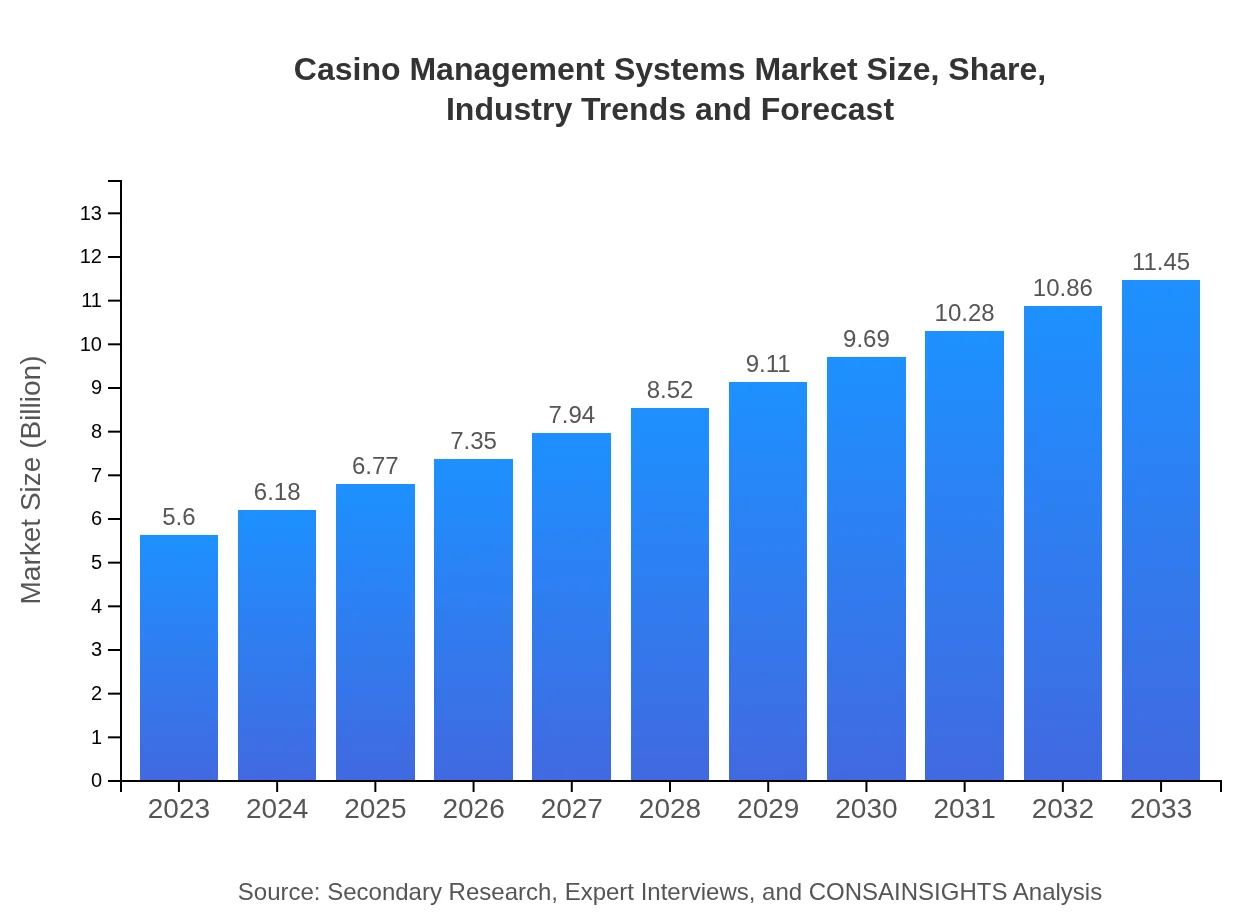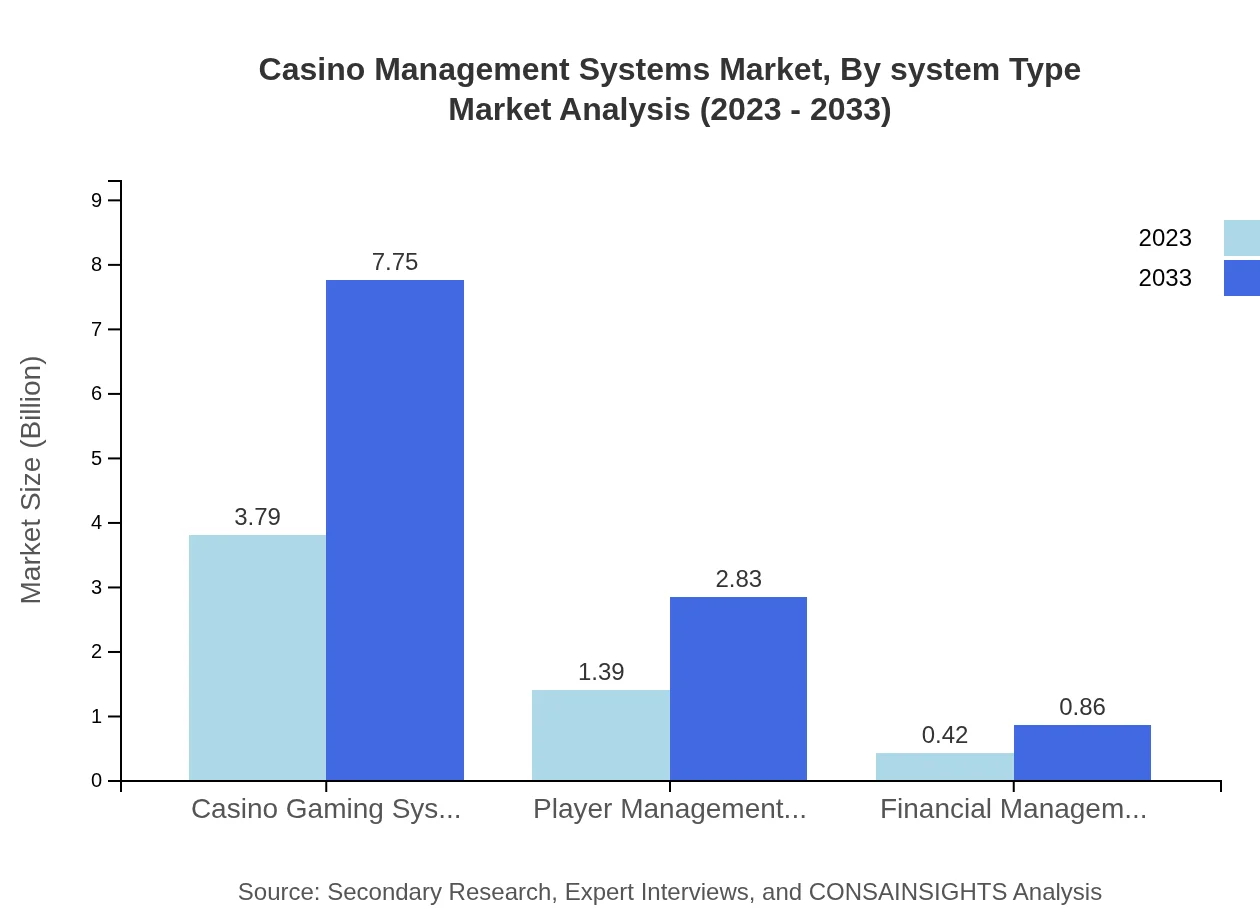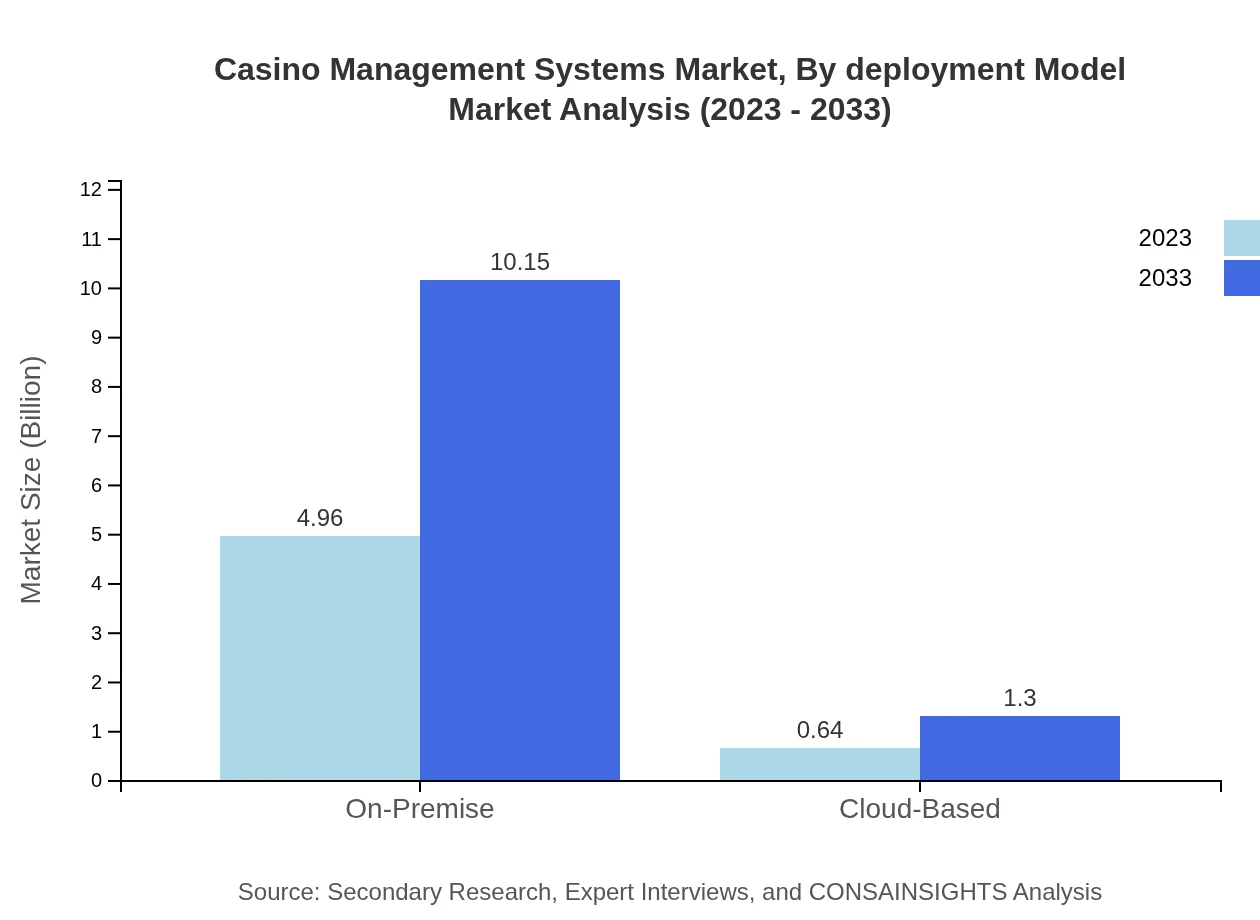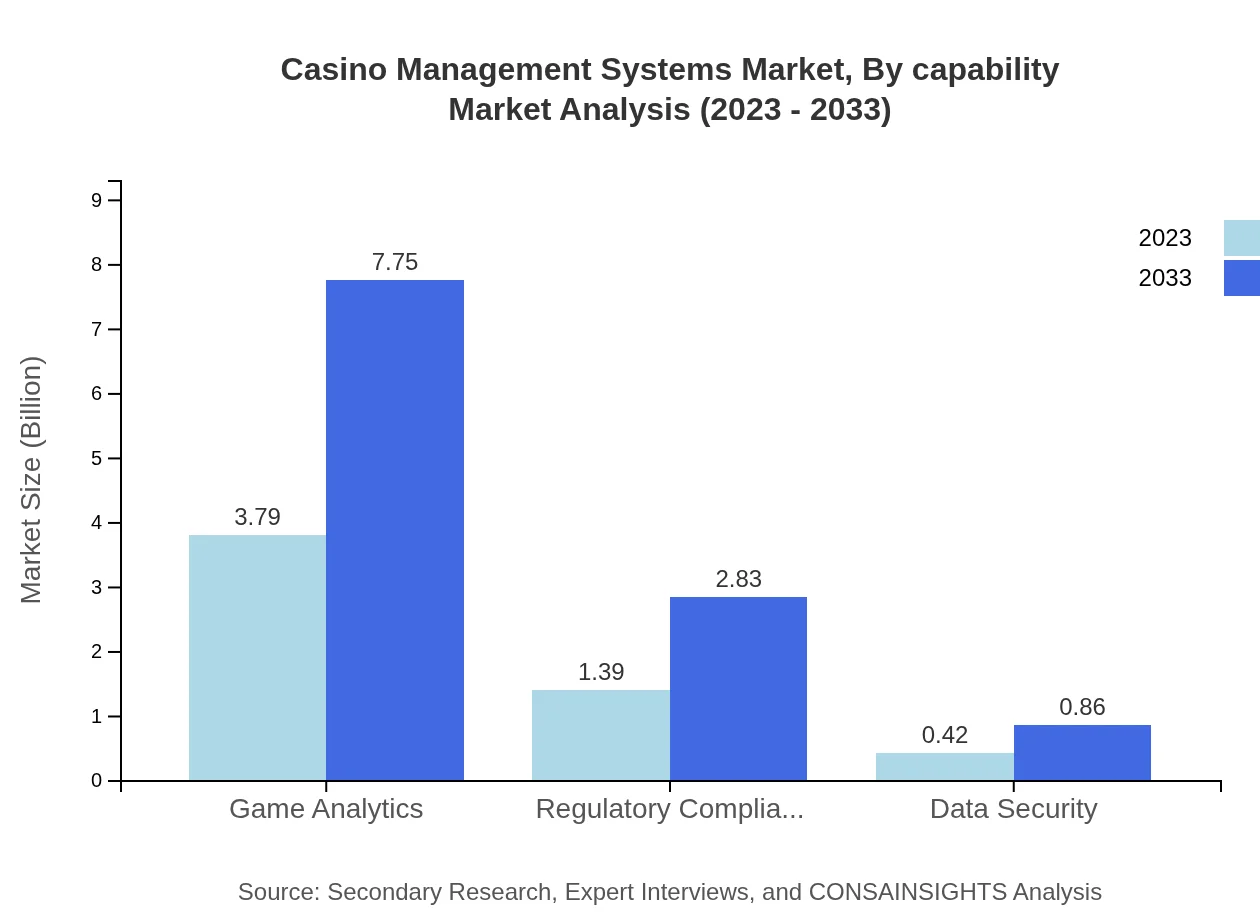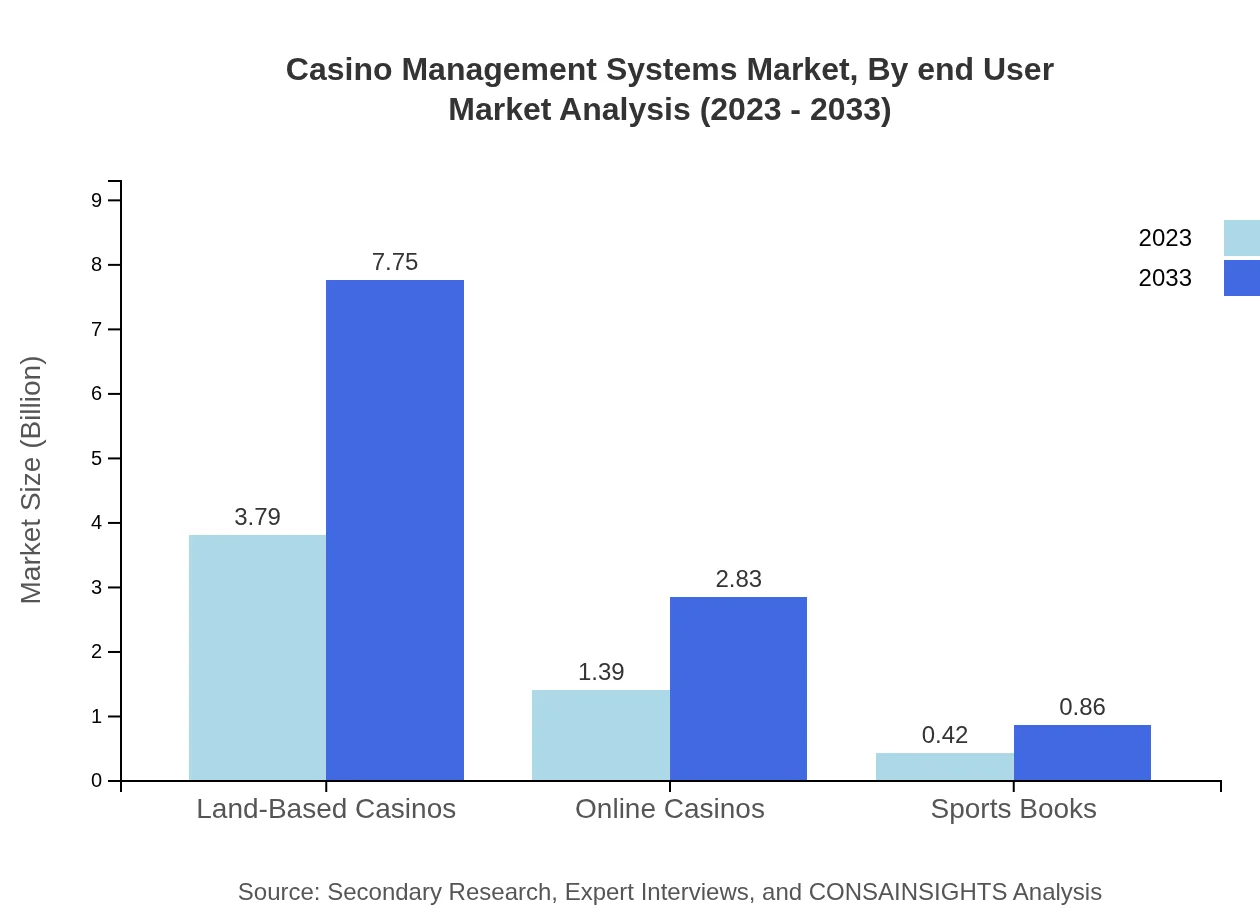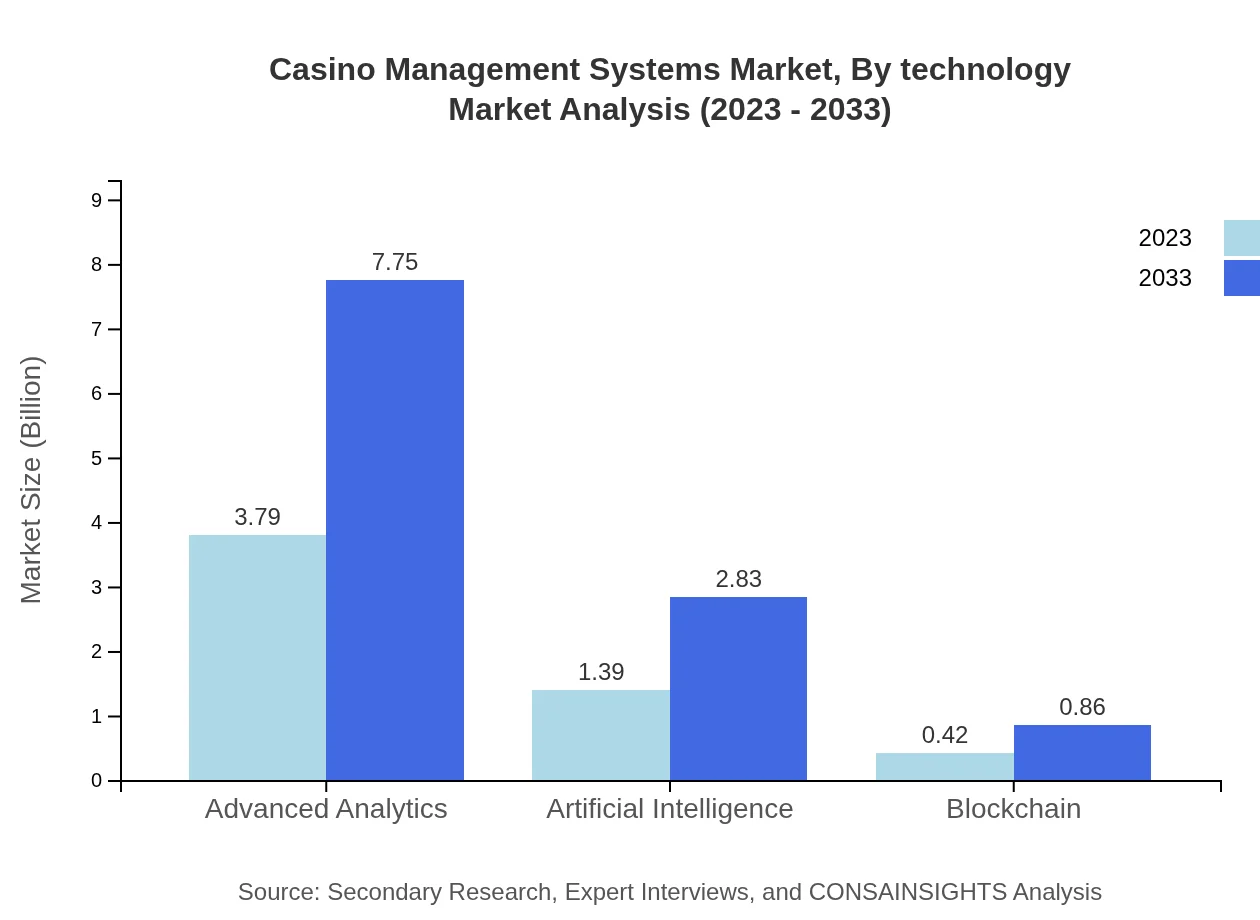Casino Management Systems Market Report
Published Date: 31 January 2026 | Report Code: casino-management-systems
Casino Management Systems Market Size, Share, Industry Trends and Forecast to 2033
This report provides an in-depth analysis of the Casino Management Systems market from 2023 to 2033, highlighting key insights, market dynamics, competitive landscape, and trends. It covers market size forecasts, regional insights, segmented analysis, and technology advancement that shape the industry.
| Metric | Value |
|---|---|
| Study Period | 2023 - 2033 |
| 2023 Market Size | $5.60 Billion |
| CAGR (2023-2033) | 7.2% |
| 2033 Market Size | $11.45 Billion |
| Top Companies | IGT (International Game Technology), Scientific Games Corporation, Everi Holdings Inc., Konami Gaming, Inc., Oracle Hospitality |
| Last Modified Date | 31 January 2026 |
Casino Management Systems Market Overview
Customize Casino Management Systems Market Report market research report
- ✔ Get in-depth analysis of Casino Management Systems market size, growth, and forecasts.
- ✔ Understand Casino Management Systems's regional dynamics and industry-specific trends.
- ✔ Identify potential applications, end-user demand, and growth segments in Casino Management Systems
What is the Market Size & CAGR of Casino Management Systems market in 2023?
Casino Management Systems Industry Analysis
Casino Management Systems Market Segmentation and Scope
Tell us your focus area and get a customized research report.
Casino Management Systems Market Analysis Report by Region
Europe Casino Management Systems Market Report:
The European market for Casino Management Systems is anticipated to grow significantly, from $1.76 billion in 2023 to $3.60 billion by 2033. Factors such as increasing online gambling activities and technological adoption in existing casinos fuel this growth.Asia Pacific Casino Management Systems Market Report:
The Asia Pacific region is witnessing rapid growth in the Casino Management Systems market, projected to expand from $0.98 billion in 2023 to $2.00 billion by 2033. The increasing popularity of gaming in countries like China and Japan is driving investment in CMS, focusing on online gaming solutions and innovations.North America Casino Management Systems Market Report:
North America leads the Casino Management Systems market, forecasted to grow from $2.03 billion in 2023 to $4.16 billion by 2033. The region's established casino landscape, along with technological advancements, underpins robust market growth.South America Casino Management Systems Market Report:
South America represents a burgeoning market for Casino Management Systems, with its market size expected to grow from $0.17 billion in 2023 to $0.35 billion by 2033. Regulatory changes and lifting of gambling restrictions in several countries are key factors contributing to market expansion.Middle East & Africa Casino Management Systems Market Report:
The Middle East and Africa region is gradually enhancing its Casino Management Systems market, expected to grow from $0.65 billion in 2023 to $1.33 billion by 2033. Investments in casino development and government regulations are vital for market development.Tell us your focus area and get a customized research report.
Casino Management Systems Market Analysis By System Type
In 2023, the market for Casino Gaming Systems is valued at $3.79 billion, projected to reach $7.75 billion by 2033. Player Management Systems are also influential, starting at $1.39 billion and expected to grow to $2.83 billion. Financial Management Systems hold a smaller but essential share, starting at $0.42 billion and anticipated to grow to $0.86 billion.
Casino Management Systems Market Analysis By Deployment Model
The On-Premise deployment model leads the market, starting at $4.96 billion in 2023 and reaching $10.15 billion by 2033, while Cloud-Based models begin at $0.64 billion and may increase to $1.30 billion, reflecting the growing interest in flexible, scalable solutions.
Casino Management Systems Market Analysis By Capability
Game Analytics takes the largest share, valued at $3.79 billion in 2023 and expected to grow to $7.75 billion. Advanced Analytics also stands notable at $3.79 billion, while Artificial Intelligence and Data Security showcase rapid growth, from $1.39 billion and $0.42 billion, respectively, anticipated to reach $2.83 billion and $0.86 billion.
Casino Management Systems Market Analysis By End User
Land-Based Casinos dominate the end-user market with significant shares, beginning at $3.79 billion and projected at $7.75 billion by 2033, while online casinos follow at $1.39 billion to $2.83 billion, reflecting a growing trend towards digitized gaming solutions.
Casino Management Systems Market Analysis By Technology
Technological advancements are crucial, particularly with AI leading with a market size growing from $1.39 billion in 2023 to $2.83 billion. Blockchain technology also demonstrates potential growth, anticipated to double from $0.42 billion to $0.86 billion over the period.
Casino Management Systems Market Trends and Future Forecast
Tell us your focus area and get a customized research report.
Global Market Leaders and Top Companies in Casino Management Systems Industry
IGT (International Game Technology):
IGT is a global leader in gaming technology and provides a wide range of gaming solutions including casino management systems. Their innovations driving operational efficiencies and enhanced player experiences are well acclaimed.Scientific Games Corporation:
Scientific Games offers an extensive portfolio of innovative solutions for casino operations, focusing on enhancing customer engagement and operational efficiencies through cutting-edge technologies in CMS.Everi Holdings Inc.:
Everi specializes in financial technology and player loyalty solutions, helping gaming venues optimize operations while ensuring compliance and enhancing customer interactions.Konami Gaming, Inc.:
Konami is notable for its integrated gaming systems that incorporate advanced analytics to enhance operations and customer engagement within casinos.Oracle Hospitality:
Providing cloud-based solutions, Oracle Hospitality enhances the customer experience through efficient casino management systems tailored for both traditional and online gaming.We're grateful to work with incredible clients.









FAQs
What is the market size of casino Management Systems?
The casino management systems market is currently valued at $5.6 billion, with a robust Compound Annual Growth Rate (CAGR) of 7.2%. This strong growth highlights the increasing demand for integrated gaming solutions across the globe.
What are the key market players or companies in this casino Management Systems industry?
Key players in the casino management systems market include industry giants like International Game Technology (IGT), Aristocrat Technologies, Bally Technologies, and Scientific Games. These companies drive innovation and set high standards in system functionalities and customer service.
What are the primary factors driving the growth in the casino Management Systems industry?
Growth in the casino management systems industry is primarily driven by the rise in online gambling, technological advancements, and the demand for data analytics. Enhanced player experiences and regulatory compliance also push the need for sophisticated management solutions.
Which region is the fastest Growing in the casino Management Systems?
The fastest-growing region in the casino management systems market is Asia Pacific, projected to rise from $0.98 billion in 2023 to $2.00 billion by 2033. This surge is spurred by increasing investments in gaming infrastructure and expanding popularity of gaming activities.
Does ConsaInsights provide customized market report data for the casino Management Systems industry?
Yes, ConsaInsights offers customized market report data tailored to specific needs across the casino management systems industry. Clients can request insights focusing on particular regions, segments, or market dynamics for their strategic planning.
What deliverables can I expect from this casino Management Systems market research project?
From the casino management systems market research project, you can expect detailed reports, market forecasts, data analysis, and segmentation insights. Deliverables may also include interactive dashboards and access to raw data for further analysis.
What are the market trends of casino Management Systems?
Current trends in the casino management systems market include a shift towards cloud-based solutions, the integration of artificial intelligence, and a focus on enhancing customer engagement. Additionally, demand for advanced analytics and regulatory compliance continues to grow.

